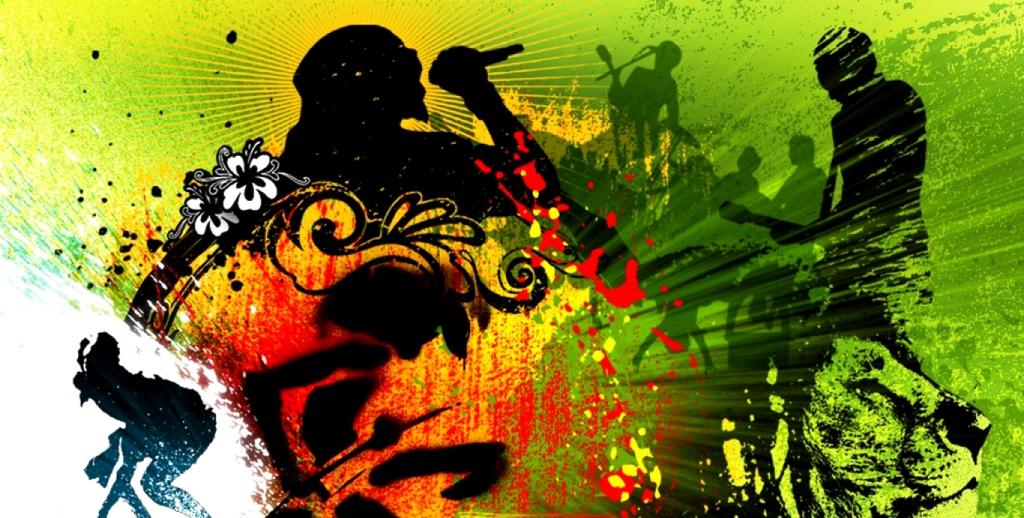Ashfaque E.J for BeyondHeadlines
“Money doesn’t matter. Only music matters. When people think first about money and then about the music the music won’t be worth the money they were thinking about. You find that most people when they get money, they get withdrawn and foolish. Money is not my richness. My richness is to live and to walk on the earth barefoot”– Bob Marley
More than two decades after his death, the Jamaican reggae star Bob Marley is more popular now than at any point during his life time. The dreadlocked Rasta is one of the world’s most recognizable icons, and his name and images are used to market a broad range of products from footwear and fashion industries.
Marley is one of the top earning dead celebrities. Marley was ranked fifth by the Forbes magazine in their listing of “Top-Earning Dead Celebrities-2013”.He is on the list with $18 million annual earnings, behind Michael Jackson (ranked first at $160 million), Elvis Presley(ranked second at $55 million),but ahead of John Lennon (ranked seventh at $12 million).
Marley, who was born in poverty and came of age in ghetto is one of the artists in popular music who not only died at his peak but left a body of work that has never gone out of fashion and remains hugely profitable. Marley’s greatest hit collection, ’Legend’ has sold an estimated 25 million copies worldwide and was identified by the SoundScan database as the most popular back catalogue item of 1990’s.The entire works of Marley ,who died before the CD format introduced was digitalized.
Marley’s estate, originally administered by his widow Rita Marley and Island Records founder Chris Blackwell, has morphed into the “Bob Marley Group of Companies,” a complex of not-for-profit charitable foundations and for-profit enterprises. Nonprofit organizations include the Bob Marley Foundation, which conducts charitable activities in Jamaica; Ghetto Youths International, a not-for-profit arts organization run by son Stephen; URGE (Unlimited Resources Generating Enlightenment), son Ziggy’s charitable organization; and the Rita Marley Foundation, a NGO based in Ghana, where Rita Marley and some of the Marley children have relocated.
Profit-making enterprises include Tuff Gong International, the recording and music licensing arm; Tuff Gong Books, which markets books by members of the Marley family; Catch A Fire, daughter Cedella’s line of designer fashions; Bob Marley Footwear, a shoe manufacturer headed by Cedella and half-brother Robbie; and 56 Hope Road, a real estate management company that operates the Bob Marley Museum in Kingston. Even parts of Marley’s own body are being marketed, although not by family members. According to press reports, a four-inch piece of Marley’s dreadlocks fetched about $1,500 at an April 2003 sale at Christie’s auction house in London.
Marley lead a Babylonian way of life. He died without leaving a will, because of extensive litigation over ownership of his recordings, publishing etc the commercial exploitation of his image and music did not begin in earnest until the 90s, when the Bob Marley foundation was incorporated and filed trademark registration for his name and picture.
Music critic Joshua Green termed the Marley family “grave-robbers” in a review of a Bob Marley tribute album that featured overdubbed performances by pop and hip hop stars “singing along” with Marley. “Marley’s shameless heirs, the production force behind this effort, have previously sold their souls … to such goodwill ambassadors as the Budweiser frogs and have avoided scrutiny simply because they’re Marleys,” Green wrote. “It’s a safe bet that if they could bottle Bob Marley’s integrity like Austin Powers’ mojo, his family would have it licensed and put up for sale” (Green, 2000). These critiques point to a conscious attempt by Marley’s heirs to reshape his image in a market-friendly fashion – to emphasize Marley’s undeniable stylishness, sensuousness, and love of a good time at the expense of his fiery revolutionary spirit and relentless campaign for human rights.
The “branding” of Bob Marley has involved considerable refashioning of Bob’s image (easy, now that he is not around to complain). The social revolutionary who once sang that he felt like bombing a church (“Talking Blues”), and advocated the “total destruction” of western capitalism (“Real Situation”), has been replaced by the natural mystic singing sweet love songs (“Three Little Birds”) and making energetic party music (“Jammin'”).
Rastas are commonly against drug use. They will not use cocaine or heroin, they also frequently avoid alcohol and even tobacco. These substances are seen as poisons that affect the body that Jah (God) gave them. They see Ganja as a gateway to understanding. It opens up the mind and helps to realize the connection between oneself and Jah. It’s a meditative tool. But now Marley is marketed as ambassador of drug. He is portrayed by our media as a man whom our children should be afraid off. There is also discussion to ban Marley and his symbols. If we fail to realize Marley and his idea properly we will lose him. Beware!
Note: Rasta – Follower of Rastafarianism, which a religious cult based on a belief that Ras Tafari (Haile Selassie) is the Messiah and that Africa (especially Ethiopia) is the Promised Land.






















